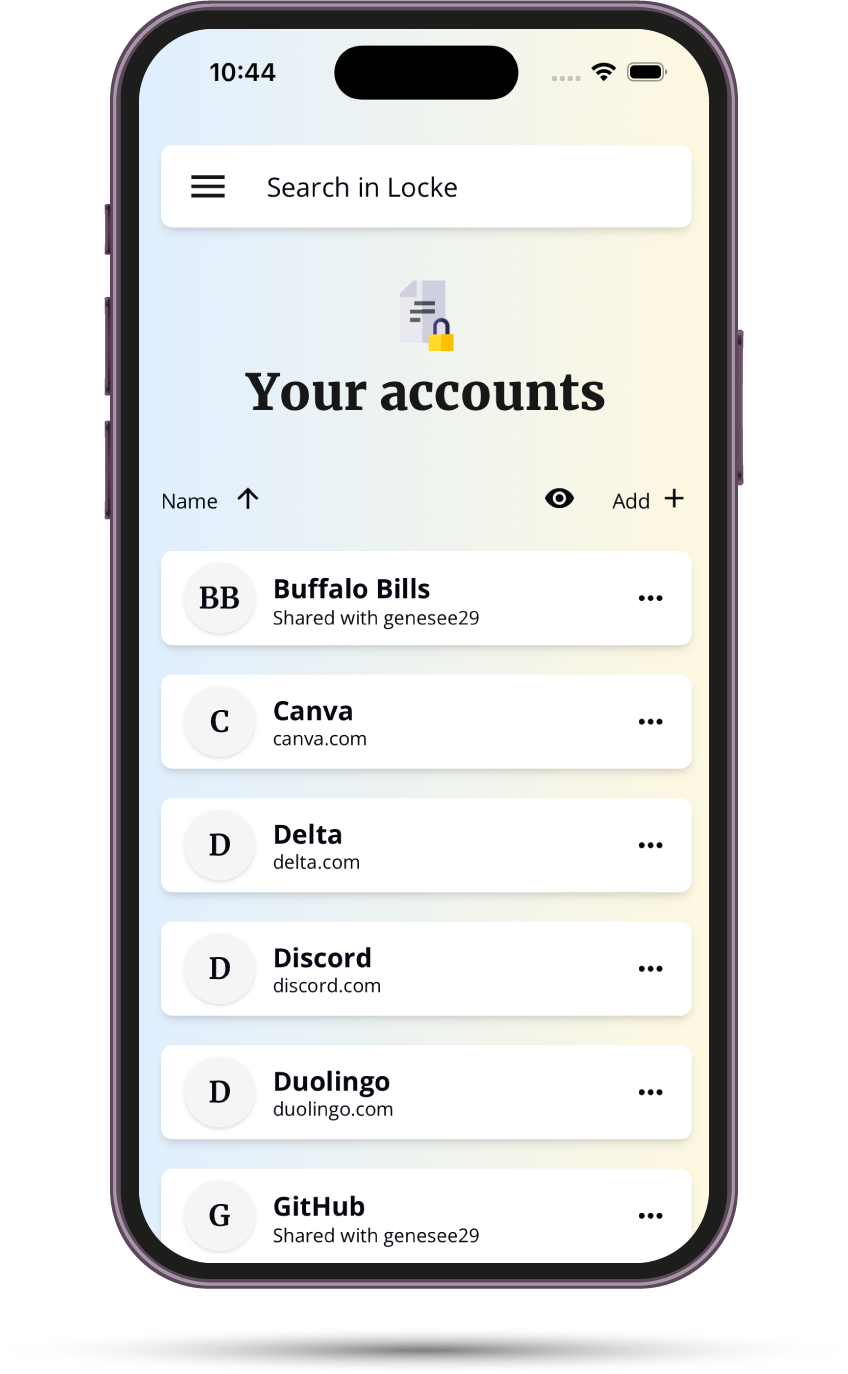Locke is a password manager that makes it easy to use strong random passwords across all devices. Post-quantum secure and simple to use, Locke enables you to own your digital identity.





We hold that all decisions shall be made on the basis of maximizing personal freedom for individuals.
We hold that to be free, information must be hidden and secured. Hidden from governments, from the general public, from your friends, from your family, from us, and from yourself. A subconscious is by definition hidden; it’s what gives us free will—or at least the perception of it.
We hold that individual people with agency positively affect their communities. That in order for individuals to exercise agency, they must first secure their personal freedom.
We hold that no individual is an island; that humanity as a whole is improved by improving geographically distinct communities. The Latin roots of the word community translate to “together, we serve”. Our mission is to enable individuals to better serve their communities via trustful transactions.

Locke is built using XChaCha, Crystals Kyber, and Shamir’s Secret Sharing to create a completely post-quantum secure fortress for you to store your passwords and files.



By using your email account as a source of identity, you put all your eggs in that basket. If your email gets hacked all of your accounts can be reset.
Instead of having all your password eggs in your email basket, we think you should distribute your eggs among family members. This greatly increases your online security by protecting you against phishing attacks that send phony password reset emails.
Locke Armory is our password manager purpose built for your business. As a Rochester-based startup, we can provide white glove support for free with a Locke Armory subscription. Let us help you upgrade your security posture.



Locke end-to-end encrypts all your passwords so that no one, not even us, can see them. Even the social recovery process is end-to-end encrypted for uncompromising security.

Unlike Netflix we want you to share passwords. While sharing passwords is never ideal, it’s something we all do. Instead of sending plaintext secrets you should use quickshare.

Locke protects everyone. While baby boomers have the most to lose by getting hacked (an average of $1700 per incident), Generation Z is the demographic most likely to get hacked.
